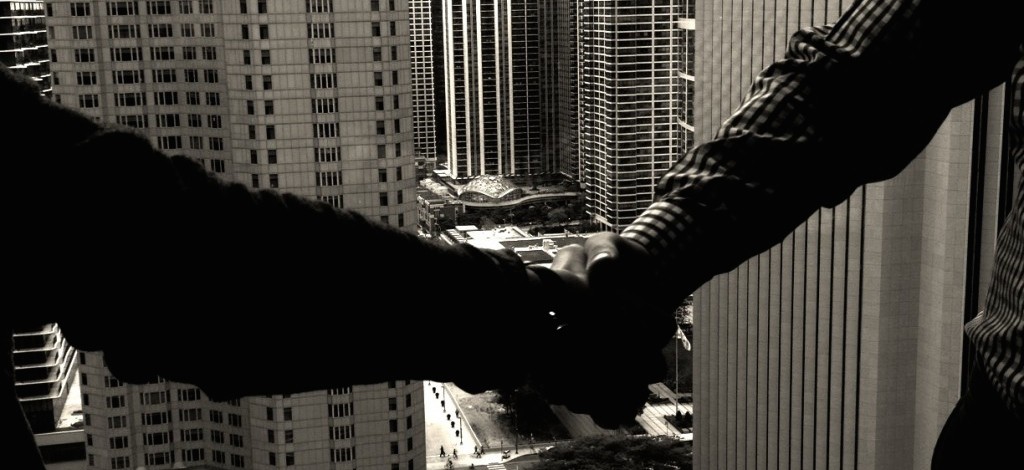Here is the second installation of our blog posts remembering 9/11 from an interfaith perspective. Our own Sanya Mansoor interviewed three faith professionals, Rabbi Capers Funnye, Father Robert Schreiter C.PP.S., and Rev. Tanya Sadagopan on their perspectives on interfaith dialogue and 9/11. Sanya also interviewed Maham Khan of the Interfaith Youth Core about her experiences as a Muslim college student on the days after 9/11. The following post is a culmination of the ideas, experiences and lessons these interfaith leaders have gained from thinking about 9/11. All of those quoted below come from a different Abrahamic faith, but are united in their vision for interfaith dialogue.
9/11 – An Interfaith Understanding
By: Sanya Mansoor, intern at the Niagara Foundation and student at Northwestern
“One of the things we have to all realize and appreciate is that we have to honor the dignity of difference,” said Rabbi Capers C. Funnye, Jr., the spiritual leader of Beth Shalom B’nai Zaken Ethiopian Hebrew Congregation. Rabbi Funnye is also involved in a number of boards in the Jewish community, namely the Jewish Council on Urban Affairs, an organization that was quick to speak out in defense of Muslims after 9/11.
Differences in Faith
Rabbi Funnye gave a compelling metaphor to describe how we should confront these differences in faith, “I sincerely believe we all are on one mountain trying to reach the summit but the path we have chosen may be that of Christianity or Islam or Buddhism but all of these paths are leading to a summit.”
Rev. Tanya Sadagopan, Director of Continuing Education and Outreach at the Seminary Consortium for Urban Pastoral Education, trains ministers and develops interfaith initiatives. Like Rabbi Funnye, she thinks the “most important question of our day and age is: how are we going to treat people who are different than us?”
“When we draw on the strength of our faith and we share authentically, even with people who have no faith, in a way that’s loving, we’re all lifted up to a higher place with one another, one that has to do with being accepting of what we are,” Rev. Sadagopan explained.
Difference often becomes an issue because people are able to alienate what they are not familiar with. “We fear that which we do not understand,” Maham Khan, Interfaith Youth Core member and Muslim woman rightly said.
Father Robert Schreiter, Priest of the Missionaries of the Precious Blood and Professor of Theology at Catholic Theological Union, added a necessary political lens in viewing 9/11. Immediately following the tragedy, Fr. Schreiter was asked to speak to Christian communities about the events of 9/11. He found that, “…few people here know what the United States looks like from the outside.” Father Schreiter believes that interreligious dialogue can counteract the ignorance here about the underlying causes of terrorism, “dialogue creates relationships and that’s essential for any kind of change of worldview.”
Fear of the Other
Rabbi Funnye remembers both 9/11 and the Boston Bombing as he reiterates the way in which people become, in his words, “worked up in a negative way towards the Muslim community” following such tragedies. He points out that,“We cannot accomplish anything when we are only working in context of fear.” However, Rev. Sadagopan insists that misguided fear can be conquered through genuine attempts at solidarity. She’s experienced “interfaith solidarity” through the relationship between her and her accepting Hindu in-laws. Yet, Rev. Sadagopan also alludes to a bigger picture. “Building individual relationships is important but even more powerful is when communities build relationships with different communities: when churches align themselves with mosques, when mosques align themselves with temples,” she explained.
Religion and Violence
Rev. Sadagopan puts it bluntly: “Regardless of faith, anybody who commits violence in the name of their religion is co-opting the religious tradition for their own violent purposes.” It is unquestionable that the core values of every religion revolve around love and harmony.
She also adds that when a person commits violence in the name of Islam it does more than just anger Christian Americans. “It also angers and shames Muslim Americans,” she said. “It doesn’t represent who they are.
Maham Khan stresses the importance in recognizing that “people of any faith have free will and still have the ability to make a good choice and a bad choice. Generally when people make good choices we don’t give religion the credit but when they’re bad, they suddenly belong to a special group.”
Although violence is not inherent to religious traditions, it can become a platform for learning about the religious other. The events of September 11, 2001 left some psychological and spiritual wounds. In reflecting on his fieldwork in reconciliation, Father Schreiter spoke about how trauma victims may be able to heal by recounting their stories The healing process invites people from different backgrounds, cultures ,and religions to interact and speak about the wounds they carry. Through this exchange people may begin to understand the complex worldviews of others. He went on to say that we may even see how actions taken by the United States, “may be seen as extremist by others.”
These four people, leaders in the interfaith movement and in their own faith traditions all emphasize the need for dialogue and cultural understanding in the face of horrible tragedies such as 9/11. While Rabbi Capers Funnye, Rev. Tanya Sadagopan, Father Schreiter, and Maham Khan all belong to different Abrahamic faiths, they understand the need for peace and understanding during such trying times. Emphasizing what makes our faiths unique, but also what brings us together is crucial to bridge the gaps between religions.

